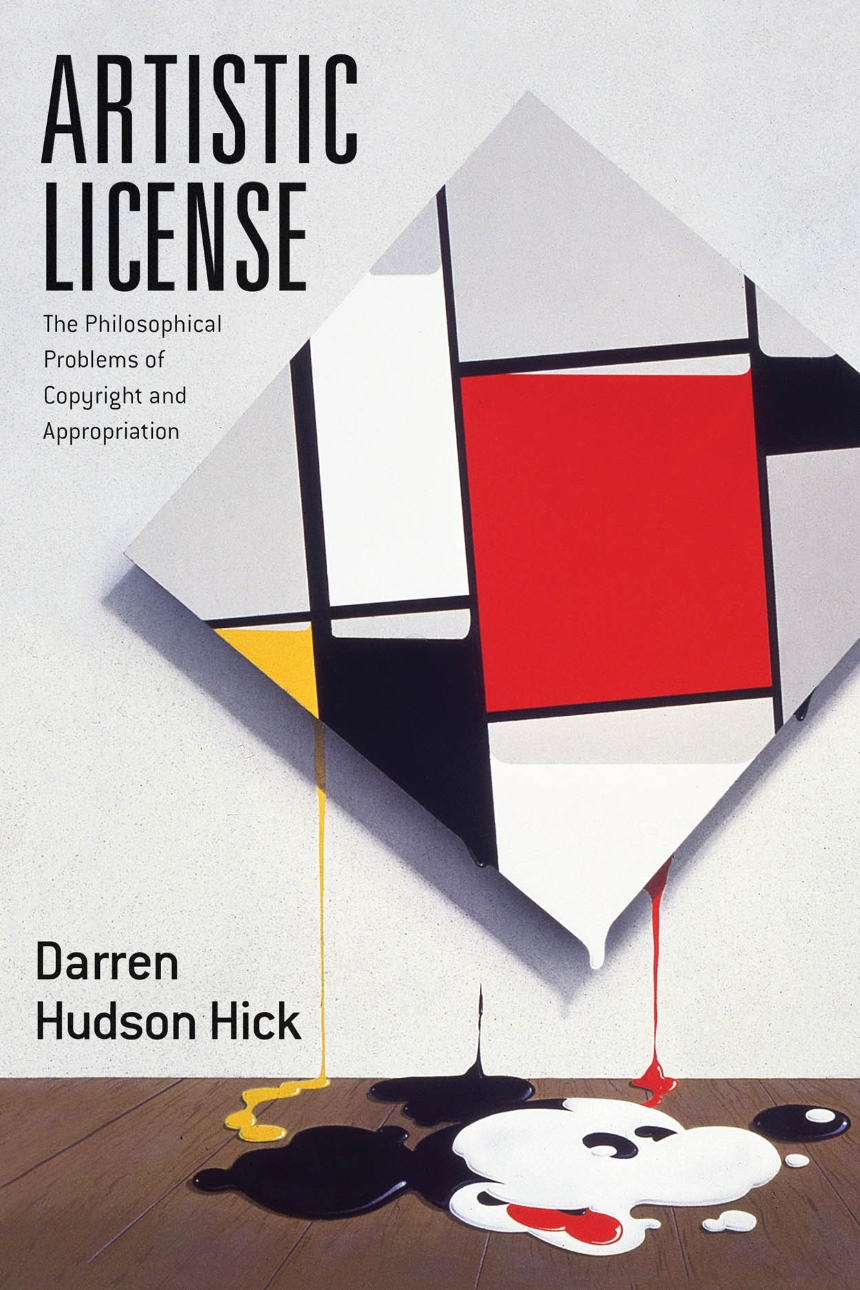Artistic License
The Philosophical Problems of Copyright and Appropriation
9780226460246
9780226460383
Artistic License
The Philosophical Problems of Copyright and Appropriation
The art scene today is one of appropriation—of remixing, reusing, and recombining the works of other artists. From the musical mash-ups of Girl Talk to the pop-culture borrowings of Damien Hirst and Jeff Koons, it’s clear that the artistic landscape is shifting—which leads to some tricky legal and philosophical questions. In this up-to-date, thorough, and accessible analysis of the right to copyright, Darren Hudson Hick works to reconcile the growing practice of artistic appropriation with innovative views of artists’ rights, both legal and moral.
Engaging with long-standing debates about the nature of originality, authorship, and artists’ rights, Hick examines the philosophical challenges presented by the role of intellectual property in the artworld and vice versa. Using real-life examples of artists who have incorporated copyrighted works into their art, he explores issues of artistic creation and the nature of infringement as they are informed by analytical aesthetics and legal and critical theory. Ultimately, Artistic License provides a critical and systematic analysis of the key philosophical issues that underlie copyright policy, rethinking the relationship between artist, artwork, and the law.
Engaging with long-standing debates about the nature of originality, authorship, and artists’ rights, Hick examines the philosophical challenges presented by the role of intellectual property in the artworld and vice versa. Using real-life examples of artists who have incorporated copyrighted works into their art, he explores issues of artistic creation and the nature of infringement as they are informed by analytical aesthetics and legal and critical theory. Ultimately, Artistic License provides a critical and systematic analysis of the key philosophical issues that underlie copyright policy, rethinking the relationship between artist, artwork, and the law.
240 pages | 6 x 9 | © 2017
Art: Art Criticism
Law and Legal Studies: Law and Society
Philosophy: Aesthetics, General Philosophy
Reviews
Table of Contents
Acknowledgments
Introduction
One / Culture Clashes
Two / Ontology, Copyright, and Artistic Practice
Three / The Myth of Unoriginality
Four / Authorship, Power, and Responsibility
Five / Toward an Ontology of Authored Works
Six / The Rights of Authors
Seven / The Rights of Others
Eight / Appropriation and Transformation
Afterword
Notes
Bibliography
Index
Introduction
One / Culture Clashes
Two / Ontology, Copyright, and Artistic Practice
Three / The Myth of Unoriginality
Four / Authorship, Power, and Responsibility
Five / Toward an Ontology of Authored Works
Six / The Rights of Authors
Seven / The Rights of Others
Eight / Appropriation and Transformation
Afterword
Notes
Bibliography
Index
